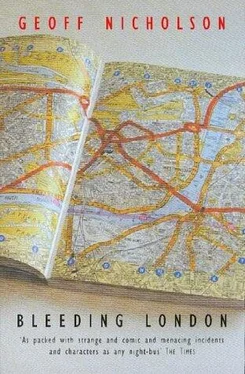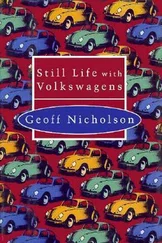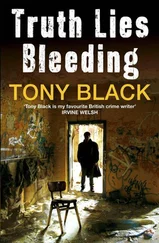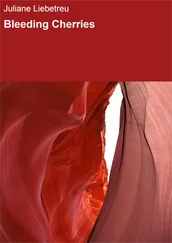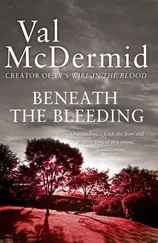♦
This one I hardly believe. It’s too strange, too anecdotal, too fictional. It’s almost as though someone’s setting these things up for me.
I was walking along Magdala Avenue, near Archway, and there were two women waiting at a bus stop. They weren’t old but they were dowdy, overweight, looking as though they’d led hard, children-filled lives.
They were deep in conversation, but as I got level with them one looked up and turned to me as though she wanted me to settle a difference of opinion they’d been having.
“Excuse me,” she said. “You’ve heard that expression ‘the seven-year itch’? Well, what does it mean exactly?”
There didn’t appear to be any ulterior motive, she wasn’t sending me up or taking the piss, she just wanted a second, or I suppose third, opinion on what the seven-year itch was. I didn’t feel very articulate, but I said I thought it referred to people who’d been in relationships for seven years, though not literally seven, I pointed out, and one or possibly both of the partners had got bored and had started looking for excitement with someone else.
“Yes, right,” the woman went on, but that obviously wasn’t all she wanted to know. “But if like the man goes off on a seven-year itch he always comes back, doesn’t he?”
Not wanting to claim any great expertise on the subject I replied, “I think sometimes he does, sometimes he doesn’t.”
“Oh,” she said, very gloomy and disappointed, and her friend looked on sadly.
I just stood there thinking I’d definitely said the wrong thing and wanting to say something more cheerful and optimistic, but I didn’t know how to phrase it. Eventually, noticing my lack of ease, the other woman said, “Thanks very much, sir.”
The use of ‘sir’ crushed me. I walked on feeling like some evil squire who went around dashing the hopes of poor, honest, downtrodden women.
♦
In Bentinck Street, Mayfair, I saw a tall, imposing bay-fronted house with a blue plaque in honour of Edward Gibbon, author of Decline and Fall of the Roman Empire . I looked at the house and thought what a great place it would be to live and write.
But I read the plaque more closely and Gibbon didn’t actually live in this house but in a house ‘on this site’. I felt a little cheated, and then I realized that this was how it was always likely to be. When we say Edward Gibbon lived here, or this was where Elizabeth Browning met Byron, or this is where Christopher Marlowe was killed, or this is where Samuel Johnson walked, what do we mean by ‘here’? The here has gone just as surely as the now. Even if they still exist, the buildings they inhabited have been changed out of all recognition. The streets are no longer the same. They’ve been modernized, transformed. The men and women of the past did not walk these actual paving stones. Their world looked different, smelled different, felt different. They didn’t see the world as we see it now, and it’s a great arrogance to believe we’re treading in their footsteps.
The city, it seems to me, must always be a palimpsest, a series of erasures, of new beginnings, obliterations, of temporary preservations and misguided reconstructions. Much of it is guesswork. There is no authorized text.
As I walk through London I find I’m moved by history but not by nostalgia, and I wonder if what I’m moved by is perhaps something behind history, behind events and personalities; mythic forms, archetypes, the old, old stories, something older than this city, something that is inherent in the very idea of the city.
♦
I was in Upper Street, Islington, at the Highbury end opposite the Union Chapel, when I heard a man shouting, “They’re fucked. This government is fucked.” I thought it might be some lunatic talking to himself but in fact it was a young, smartly dressed man talking to a woman. He was shouting because his politics were so passionate.
“Just a couple of demonstrations,” he said, “just a couple of strikes, and it’s all over for this government.”
In fact the pair were putting up political posters, cheap, A4-sized, photocopied ones with the slogan, “Ditch this rabble NOW.”The woman was taping them very neatly to the glass sides of a bus stop and the man was giving her quite unnecessarily detailed instructions on how to do it. I wondered why he wasn’t doing it himself. Then I saw he was carrying a white stick. He was blind.
♦
In Uxbridge Road, Baling, I noticed a pattern, a series of events that I must have seen and heard many times before, but only today did I understand it clearly. It’s what happens when traffic grinds to a complete halt because some vehicle, say a delivery van, is blocking the road. The traffic sits there for a while more or less patiently, then one driver decides he has to sound his horn, then another joins in, then a few more. Then someone (you never seem to see the person) shouts something obscene, “Shut up, you cunts,” or something like that, and then someone else shouts something equally obscene back, and then, strangely enough, the horns stop, the shouting stops, the vehicle causing the problem moves on and the traffic starts to flow again.
The process may take a greater or lesser time but is always very similar. You’re tempted to think that patience would have brought about exactly the same result in exactly the same amount of time, that the traffic was bound to have started moving again with or without the shouting and horn sounding. But it seemed to me that perhaps there is something about the sounding of horns and the shouting of obscenities that’s necessary for the life and traffic flow of any city.
♦
In Station Road, Upper Holloway, a small boy hanging on a railing. He was angelic, blond, smiling, attractive, and he was with another little boy, a year or two older, dark-haired, much less appealing. The latter kicked the former but the little blond boy only giggled. Another harder kick and the little boy giggled even more. Another kick and the boy went into paroxysms of pleasure. I walked on before it all ended in tears.
♦
In Coventry Street, which leads from Piccadilly Circus to Leicester Square, I looked in the window of a souvenir shop. There were lots of models of Tower Bridge and Big Ben for sale. And I thought these were not such bad icons of London, not bad pieces of architecture, after all. There were lots of models of black cabs and double-decker buses for sale too; things not unique to London but certainly part of the scene. However, as I walked past, a group of twenty or so French kids were each buying plastic policeman’s helmets.
In Leicester Square itself, waiting outside the Odeon cinema there were half a dozen young, very fashionable Japanese tourists. One was talking on a portable phone, one was carrying a huge bunch of flowers. They were being quite lively and the two with the flowers and the phone started to have a mock fight, pretending to punch each other with their free hands.
There was an HMV record shop with a poster in the window announcing an EAR OUT SALE. Then I saw that the first two letters were covered up. What it actually said was CLEAROUT SALE.
If certain nineteenth-century enthusiasts had had their way the whole of the south side of Leicester Square would have been taken up by a monument to Sir Isaac Newton. Not prepared to settle for a plaque or a statue, they wanted his whole house to be preserved inside a sort of truncated pyramid, on top of which was to be set a massive stone sphere. His tomb in Westminster Abbey is quite wild enough for most people.
♦
I was in Agar Street, by the Zimbabwe High Commission, and outside was an official limo with the registration number ZIM 1. It was parked and the driver wasn’t there, but on the front seat there was a bag of Sainsbury’s shopping.
Читать дальше
